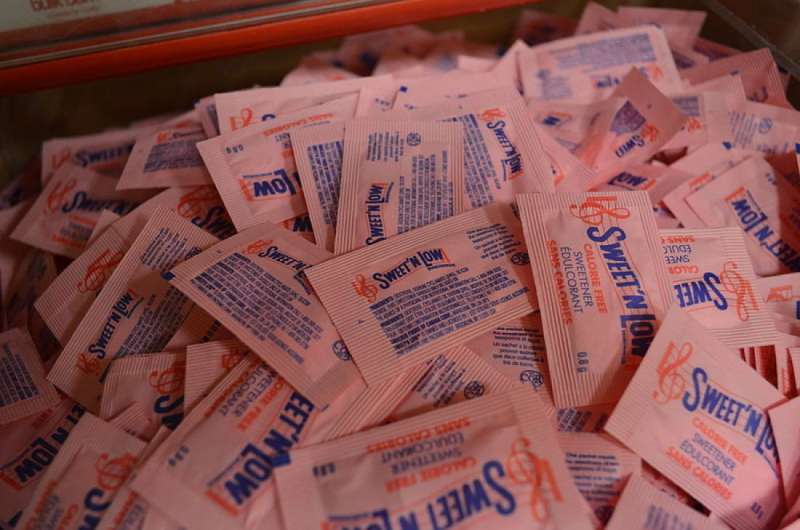Are artificial sweeteners counterproductive when dieting?

Next time you drop an artificial sweetener into your coffee thinking of the weight you'll lose by avoiding sugar, think again.
A new study published in Cell Metabolism today has found that artificial sweeteners combined with a low carbohydrate diet significantly increases the quantity of calories consumed.
The study, led by the University of Sydney's Charles Perkins Centre and School of Life and Environmental Sciences, offered fruit flies diets with varying amounts of carbohydrate and sweeteners, and tracked resulting food intake.
Flies that consumed artificial sweeteners alongside a low carbohydrate diet showed an immediate increase in food intake. This increase varied according to the dose of sweeteners provided and was not observed in flies consuming unsweetened foods.
Importantly, a previous study reported that consumption of an artificial sweetener in the context of a higher carbohydrate diet actually suppresses food intake, and therefore may help reduce calories consumed.
However when examined in detail, these results were not reproduceable, and flies that were offered a higher carbohydrate diet and consumed higher doses of sweeteners did not simultaneously reduce their food intake.
Lead researcher Associate Professor Greg Neely, from the University of Sydney's Faculty of Science, said the new findings supported the team's previous conclusions.
"Distorting the perceived energy value of food, by manipulating sweetness through artificial means, has unanticipated consequences in these animal studies" he said.
"Although originally considered benign, a growing body of research including our own makes clear a connection between artificial sweeteners, hunger and food intake.
"To fully understand the impact of artificial sweeteners on overall health, we require further systematic investigation of these effects on metabolism."
Previous research by the University of Sydney team on flies and mice revealed chronic consumption of artificial sweeteners increase feelings of hunger due to a complex neuronal network that responds to artificially sweetened food by telling the animal it hasn't eaten enough energy.
More information: Qiao-Ping Wang et al, Chronic Sucralose or L-Glucose Ingestion Does Not Suppress Food Intake, Cell Metabolism (2017). DOI: 10.1016/j.cmet.2017.07.002


















